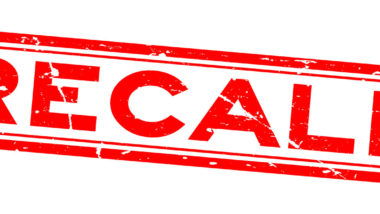Top Class Actions’s website and social media posts use affiliate links. If you make a purchase using such links, we may receive a commission, but it will not result in any additional charges to you. Please review our Affiliate Link Disclosure for more information.
Uloric, a gout medication brought on the market a decade ago, was meant to be used as a first-line gout treatment, similar to the long-time gout staple medication: allopurinol. But recent research has shown that Uloric may not actually be safer than allopurinol.
What is Uloric?
Uloric (also known by its generic name, febuxostat) is manufactured by Takeda Pharmaceuticals and was approved by the U.S. Food and Drug Administration (FDA) in 2009 as a treatment for gout in adults.
Gout is a type of arthritis caused by excessive amounts of uric acid in the bloodstream, leading to pain, swelling, and tenderness in the joints. Uloric joined allopurinol, approved by the FDA in 1996, as one of the leading options for treating gout, according to WebMD.
When first approved, Uloric was considered safer than allopurinol because very little of the drug is excreted through the kidneys. It was also considered more convenient, as it didn’t require dosing adjustments and only necessitated taking one pill a day.
However, Uloric may not be safer than allopurinol—in fact, the FDA recently released a warning about cardiovascular complications linked with the drug.
Is Uloric Still Considered Safe?
In a recent FDA safety announcement, the federal agency announced that Uloric had been linked with an increased risk of death. The agency added a black box warning to the drug’s label and now requires that doctors prescribe Uloric only to patients for whom allopurinol was ineffective or intolerable.
“We are also limiting the approved use of Uloric to certain patients who are not treated effectively or experience severe side effects with allopurinol,” the FDA noted in its safety announcement released Feb. 21, 2019.
In other words, the FDA has decided that Uloric is no longer considered a first-line drug for gout treatment, and should be used only in patients for whom there are no better options. Allopurinol should be used as the primary treatment option.
What Sparked the FDA Warning?
The FDA’s warning about Uloric’s risks comes after a seven-year safety trial involving more than 6,000 gout patients showed an increased risk of cardiovascular-related death when compared to allopurinol. The case study was a requirement of the FDA’s initial approval of Uloric in 2009.

The study, published in the New England Journal of Medicine in March 2018, found that the risk of death from any cause, and the risk for cardiovascular death, were higher in patients taking Uloric. The most prevalent cause of cardiovascular death was reportedly “sudden cardiac death.”
This result was reportedly “unexpected” because the frequency of cardiac events (heart attack, stroke, etc.) was similar between the two groups. However, researchers noted that the “excess” of cardiac deaths in the Uloric group resulted in a significantly increased overall risk of death and cardiac death.
In the Uloric group, 15 deaths of heart-related causes and 26 total deaths were seen for every 1,000 patients. The comparative placebo group reportedly had only 11 heart-related deaths and 22 deaths overall for every 1,000 patients.
“In the CARES trial, treatment with febuxostat resulted in overall rates of major cardiovascular events that were similar to those associated with allopurinol treatment among patients with gout who had coexisting cardiovascular disease,” the researchers concluded. “However, cardiovascular death and deaths from any cause were more frequent in the febuxostat group than in the allopurinol group.”
Based on the Uloric study results, the FDA became concerned about the drug’s risk of stroke, cardiac ischemia requiring emergency surgery, non-deadly heart attacks, and fatal heart attacks. This prompted the agency to require new warnings on Uloric so that doctors and patients would be sufficiently warned of the risks for death.
Gout Symptoms
The FDA’s safety announcement also specified a few symptoms that people taking Uloric should look out for and, if experienced, should seek emergency medical attention. These symptoms include:
- Chest pain
- Shortness of breath
- Rapid or irregular heartbeat
- Numbness or weakness on one side of the body
- Dizziness
- Trouble talking
- Sudden severe headache
The most common site for a gout attack is the big toe, but other locations include the ankles, knees, elbows, wrists, and fingers. The area affected by gout becomes swollen, red, and painful, and often comes on without warning. Pain tends to remain at a fairly high level for four to 12 hours after it starts, and though it will ebb after that, discomfort will continue for a few days to a few weeks. Sudden, intense joint pain means it is time to call your doctor.
Risk factors that can contribute to a person’s likelihood to develop gout include:
- Diet rich in meat and seafood
- Beverages sweetened with sugar
- Alcohol, especially beer
- Obesity
- Medical conditions like high blood pressure, diabetes, metabolic syndrome, and heart or kidney disease
- Family history of gout
- Certain medications
Can I File a Uloric Lawsuit?
If you or someone you love has suffered side effects of Uloric, including cardiovascular complications, or if someone you love has died from these complications, you may be able to file a lawsuit and pursue compensation. Of course, filing a lawsuit cannot undo the pain and suffering, nor can it bring a loved one back to life, but it can at least help to alleviate the financial burden incurred by medical expenses, lost wages, and more.
Filing a lawsuit can be daunting, so Top Class Actions has laid the groundwork by connecting you with an experienced attorney. Consulting a lawyer can help you determine if you have a claim, navigate the complexities of litigation, and maximize your potential compensation.
In general, Uloric lawsuits are filed individually by each plaintiff and are not class actions.
Do YOU have a legal claim? Fill out the form on this page now for a free, immediate, and confidential case evaluation. The attorneys who work with Top Class Actions will contact you if you qualify to let you know if an individual Uloric lawsuit or Uloric class action lawsuit is best for you. Hurry — statutes of limitations may apply.
ATTORNEY ADVERTISING
Top Class Actions is a Proud Member of the American Bar Association
LEGAL INFORMATION IS NOT LEGAL ADVICE
Top Class Actions Legal Statement
©2008 – 2024 Top Class Actions® LLC
Various Trademarks held by their respective owners
This website is not intended for viewing or usage by European Union citizens.
Get Help – It’s Free
Join a Free Uloric Class Action Lawsuit Investigation
If you suffered from a serious side effect or a loved one died while taking Uloric, you may have a legal claim. See if you qualify to pursue compensation and join a free Uloric lawsuit investigation by submitting your information for a free case evaluation.
An attorney will contact you if you qualify to discuss the details of your potential case.
PLEASE NOTE: If you want to participate in this investigation, it is imperative that you reply to the law firm if they call or email you. Failing to do so may result in you not getting signed up as a client or getting you dropped as a client.
Oops! We could not locate your form.












